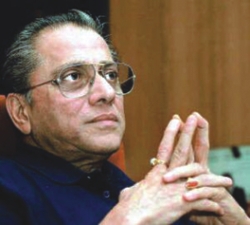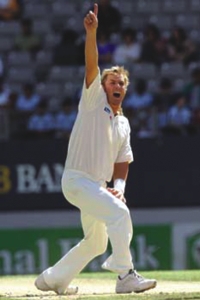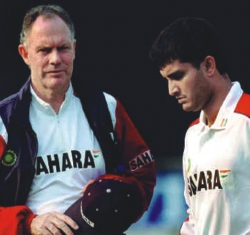|
Sport
A Game of Toss
Turn and Trouble
"India is currently the grand daddy of them all with a rift between the captain and the new coach"
Mike Selvey
While the good ship England sails on serenely from success to success, spinnaker billowing like Shane Warne's flares on a windy day, the rest of the cricket world appears to be struggling, either in the doldrums or shipping water in Southern Ocean storms.
 |
| Jagmohan Dalmiya |
No one, not even Australia, who in the aftermath of the Ashes defeat are considering whether it is time to dump the geek who has coached them in favour of someone more familiar with the fundamentals of the game, is immune. West Indies continue to be in disarray, the board fragmented and fractious, the players out of tune; the Kiwis' relationship with their coach is tense; in South Africa the quota system still causes disquiet; Sri Lanka is a hotbed of infighting; in Pakistan they are seething at the perceived insult in not selecting Inzamam-ul-Haq for the Super Series one-day squad; the Bangladesh administration is a self-indulgent shambles; and Zimbabwe... oh dear, Zimbabwe.
Then there is India and this, currently is the grand daddy of them all, with a rift between the captain and new coach that is threatening to undermine the whole structure of the national side. On the one hand is Sourav Ganguly, aristocratic (at least in his own mind), haughty, a good belter of indifferent bowling but suspect against something more testing of spirit.
Indisputably, though, he has proved to be India's most successful captain, both in his record 49 matches in charge and in his success - just 13 defeats and 21 wins in that time, including a series victory over Australia when they seemed unstoppable. His capacity to irritate the opposition has been second to none, right up there with Arjuna Ranatunga, who taught Sri Lanka how to stand up for themselves.
 But Ganguly has had his day, a modest player in a team crowded with batting talent of the highest calibre. Into this has come Greg Chappell, a supreme batsman in his time and now chosen to succeed the New Zealander John Wright, individuals as different in personality as Aussies and Kiwis tend to be. Chappell's appearance, with his vision for the future of Indian cricket, may have come as a shock to Ganguly, who has ruled his side as a prince might a principality. He will already have found Chappell uncompromising, erudite and, in no small way, political in the manner he is supposed to have attempted to coerce the captain into giving up his reign prior to a recent Test in Zimbabwe. But Ganguly has had his day, a modest player in a team crowded with batting talent of the highest calibre. Into this has come Greg Chappell, a supreme batsman in his time and now chosen to succeed the New Zealander John Wright, individuals as different in personality as Aussies and Kiwis tend to be. Chappell's appearance, with his vision for the future of Indian cricket, may have come as a shock to Ganguly, who has ruled his side as a prince might a principality. He will already have found Chappell uncompromising, erudite and, in no small way, political in the manner he is supposed to have attempted to coerce the captain into giving up his reign prior to a recent Test in Zimbabwe.
In turn the coach will have found Ganguly scheming, disdainful and, so he might believe, bombproof. The captain has the support of Jagmohan Dalmiya, no longer the board president or chairman but still the most powerful figure in Indian cricket and, bizarrely, their representative at the International Cricket Council. Dalmiya and Ganguly are from Bengal, a region that supports cricket avidly but provides bewilderingly few top players: Ganguly is far and
 |
| Sourav Ganguly and Greg Chappell |
away the best. Together they created an axis of power that it might seem impossible to break. There is little doubt, for example, about the source of the leaked email from Chappell to his employers. Now the thing has come to a head, with both parties called to explain themselves. Ganguly will plead (if he does pleading) that Chappell has come in hard, full of ideas but no understanding of the dynamic of India sides, and as a result has undermined him and fragmented the side. Chappell will argue that Ganguly is the disrupting influence and must be replaced by Rahul Dravid. For the good of Indian cricket it must surely be the captain who is offloaded and the coach given his chance.
Meanwhile Darren Gough's intended transition from international pace bowler to dance-hall hoofer has an aptness. For some time his modus operandi in one-day cricket has involved variations on the Victor Sylvester method of quick, slow, quick, quick, slow, although lately it has been danced to differing time signatures: 2/4, 3/3, 4/4. There has even been a key change in his bowling, from F sharp to B flat. Anyway let's hope the knee holds out. Can't have that giving way in the middle of a paso doble
Copyright
(R) thedailystar.net 2005 |
